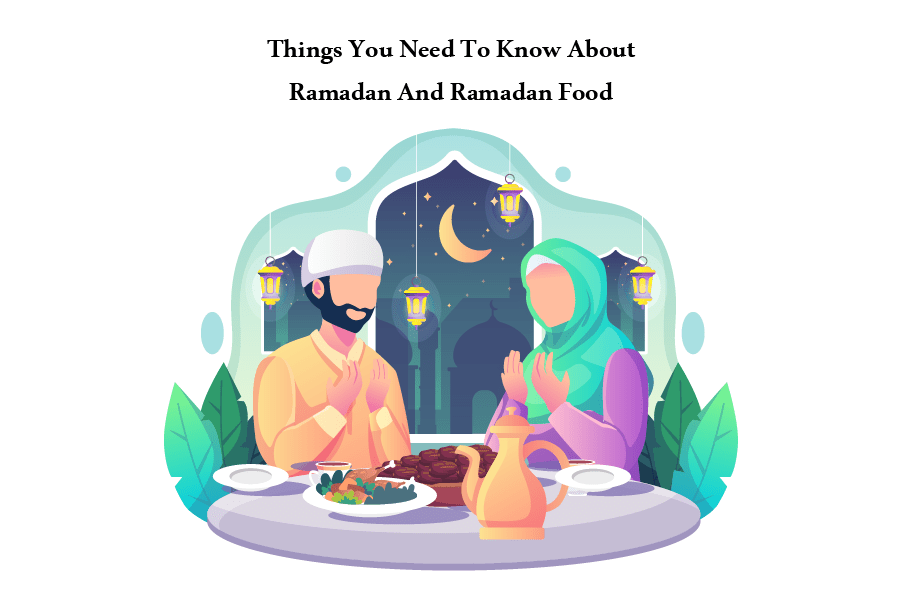Let’s know the best Ramadan food for Iftar and Suhoor.
What is Ramadan?
Ramadan is the 9th month of the Islamic Calendar, which begins with the sighting of the new moon. For the 1.8 billion Muslims worldwide, this forms the religious practice of fasting, one of the central tenants of Islam. Muslims fast for the whole month of Ramadan, 29 or 30 days (depending on when the new moon for the next month is sighted).
But that doesn’t mean Muslims don’t eat anything for a whole month! Instead, Ramadan is a period of intermittent fasting. Muslims begin their fast at dawn and break their fast at sunset. Because fasting times depend on the sun’s movement, you will find that different countries fast for other hours. Northern countries in the summer months have longer fasting hours than countries to the south.
The Purpose of Ramadan
In Ramadan, Muslims abstain from otherwise permissible acts such as eating food, drinking water/beverages, and having sex. It demonstrates that you can also refrain from sin to prohibit yourself from such completely natural and permissible things. Ramadan focuses on improving yourself spiritually by limiting worldly distractions (i.e., food, drink, sex). The statement, I think, captures Ramadan in a nutshell, “starve yourself, feed your soul.”
Ramadan and Food:
I think Ramadan is when one can take the time to evaluate their relationship with Ramadan food. We are encouraged by the Sunnah to eat and drink in moderation, for overeating causes laziness. Ramadan allows us to think about how much food and what type of Ramadan food we are putting in our bodies and gauge the effect on our spirituality.
If you eat ten samosas at Iftar, can you stand and concentrate on prayers? If you skip Suhoor, do you have the energy to complete the tasks for the day? Do I spend most of my day fasting, thinking of the food I will eat after Iftar rather than spending my time productively? These questions may benefit you in evaluating your relationship with food.
It is vital to have a healthy relationship with food. You do not want to fall into the extremes where you are averse to food (bulimia, anorexia, etc.) nor too desirous of food (obesity, etc.). Instead, one should have a relationship with food as close as possible to the Sunnah of moderation.
Best Ramadan Food
The traditional choice is to break the fast with dates. It is followed by a spread of foods that varies by culture. Dates are not only Sunnah but an excellent source of energy, sugar, and fiber. They are one of the best Ramadan food not only for Iftar but also for Suhoor.
For Suhoor, the best Ramadan food would depend on your individual needs (i.e., your job, climate, length of fasting, etc.). There are generally three types of people when it comes to having Suhoor:
- Those that eat breakfast items (cereal, eggs, pancakes, etc.)
- People who have a full dinner.
- Those who sleep right through Suhoor.
You do not want to be in the third category. Suhoor is a part of the Sunnah, providing you with the necessary energy to spend the rest of the day in worship. Whether in category 1 or 2, remember to include all food groups in your meal, such as dairy, meats, legumes, vegetables, and fruits. Indeed the best Ramadan food would be that which contains the essential nutrients your body needs to function throughout the day in this blessed month.
May Allah (SWT) bless our Ramadan efforts and make this month a source of mercy for us. Ameen.

















